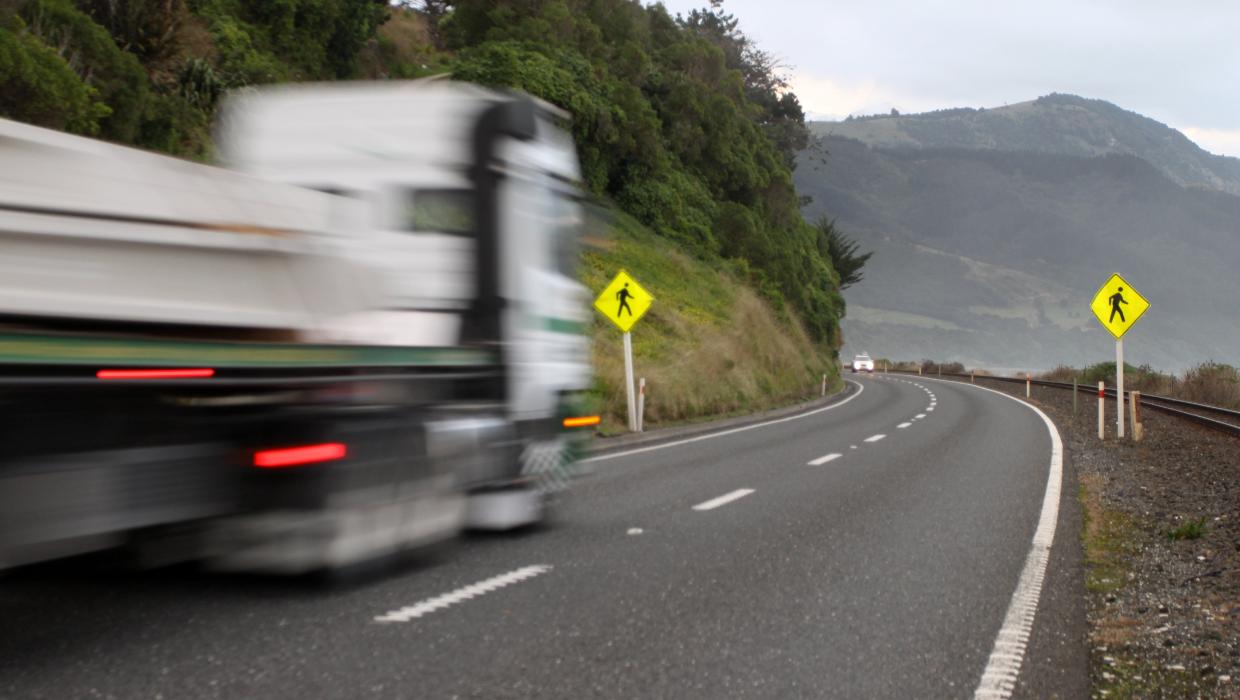Business
Truck Drivers Face Legal Pressure in Competitive Freight Industry

Truck drivers in Australia are experiencing significant pressure to meet delivery deadlines, often at the expense of adhering to legal driving regulations. The trade union representing these drivers highlights the intense competition among approximately 5,000 road freight businesses as a contributing factor to this troubling trend.
The situation has raised alarms about the safety of drivers and the general public. According to the Transport Workers Union (TWU), many drivers feel compelled to break legal limits on driving hours and rest breaks to ensure timely deliveries. The TWU has called for urgent measures to address this issue, emphasizing that prioritizing profit over safety can lead to dangerous consequences on the roads.
In a statement released earlier this week, TWU National Secretary Michael Kaine asserted that the current conditions are unsustainable. “Drivers are caught in a cycle of pressure and fear,” he stated, underscoring the need for a regulatory framework that prioritizes safety. “We need systemic change to protect both drivers and the communities they serve.”
The competition among freight companies has intensified due to rising consumer demand and a push for faster delivery times. Many companies incentivize drivers to complete routes more quickly, inadvertently encouraging them to bypass essential rest periods. This practice not only jeopardizes the well-being of drivers but also increases the risk of accidents on the roads.
The union’s concerns come as the government considers potential reforms to the trucking industry. Proposed changes aim to enhance safety standards and establish clearer guidelines regarding driving hours and mandatory breaks. These reforms could significantly impact how freight businesses operate, potentially reducing the pressure on drivers to compromise their safety.
While some industry leaders argue that flexibility is necessary to meet consumer expectations, the TWU insists that safety must remain the top priority. “A culture of safety will ultimately benefit everyone,” Kaine added. “We must create a system that respects the limits of human endurance.”
As discussions about regulatory changes progress, the trucking industry will likely face scrutiny regarding its practices. Stakeholders, including drivers, companies, and policymakers, must collaborate to create an environment where safety is paramount. Only through collective action can the industry address the pressures that threaten both drivers and public safety.
Moving forward, the TWU plans to continue advocating for driver protections and pushing for legislative changes that ensure compliance with legal driving hours and break times. As the freight industry evolves, the focus on safety and well-being will be essential in shaping its future.
-

 World1 week ago
World1 week agoPrivate Funeral Held for Dean Field and His Three Children
-

 Top Stories2 weeks ago
Top Stories2 weeks agoFuneral Planned for Field Siblings After Tragic House Fire
-

 Sports3 months ago
Sports3 months agoNetball New Zealand Stands Down Dame Noeline Taurua for Series
-

 Entertainment3 months ago
Entertainment3 months agoTributes Pour In for Lachlan Rofe, Reality Star, Dead at 47
-

 Entertainment2 months ago
Entertainment2 months agoNew ‘Maverick’ Chaser Joins Beat the Chasers Season Finale
-

 Sports3 months ago
Sports3 months agoSilver Ferns Legend Laura Langman Criticizes Team’s Attitude
-

 Sports1 month ago
Sports1 month agoEli Katoa Rushed to Hospital After Sideline Incident During Match
-

 World2 weeks ago
World2 weeks agoInvestigation Underway in Tragic Sanson House Fire Involving Family
-

 Politics2 months ago
Politics2 months agoNetball NZ Calls for Respect Amid Dame Taurua’s Standoff
-

 Top Stories2 weeks ago
Top Stories2 weeks agoShock and Grief Follow Tragic Family Deaths in New Zealand
-

 Entertainment3 months ago
Entertainment3 months agoKhloe Kardashian Embraces Innovative Stem Cell Therapy in Mexico
-

 World4 months ago
World4 months agoPolice Arrest Multiple Individuals During Funeral for Zain Taikato-Fox





















